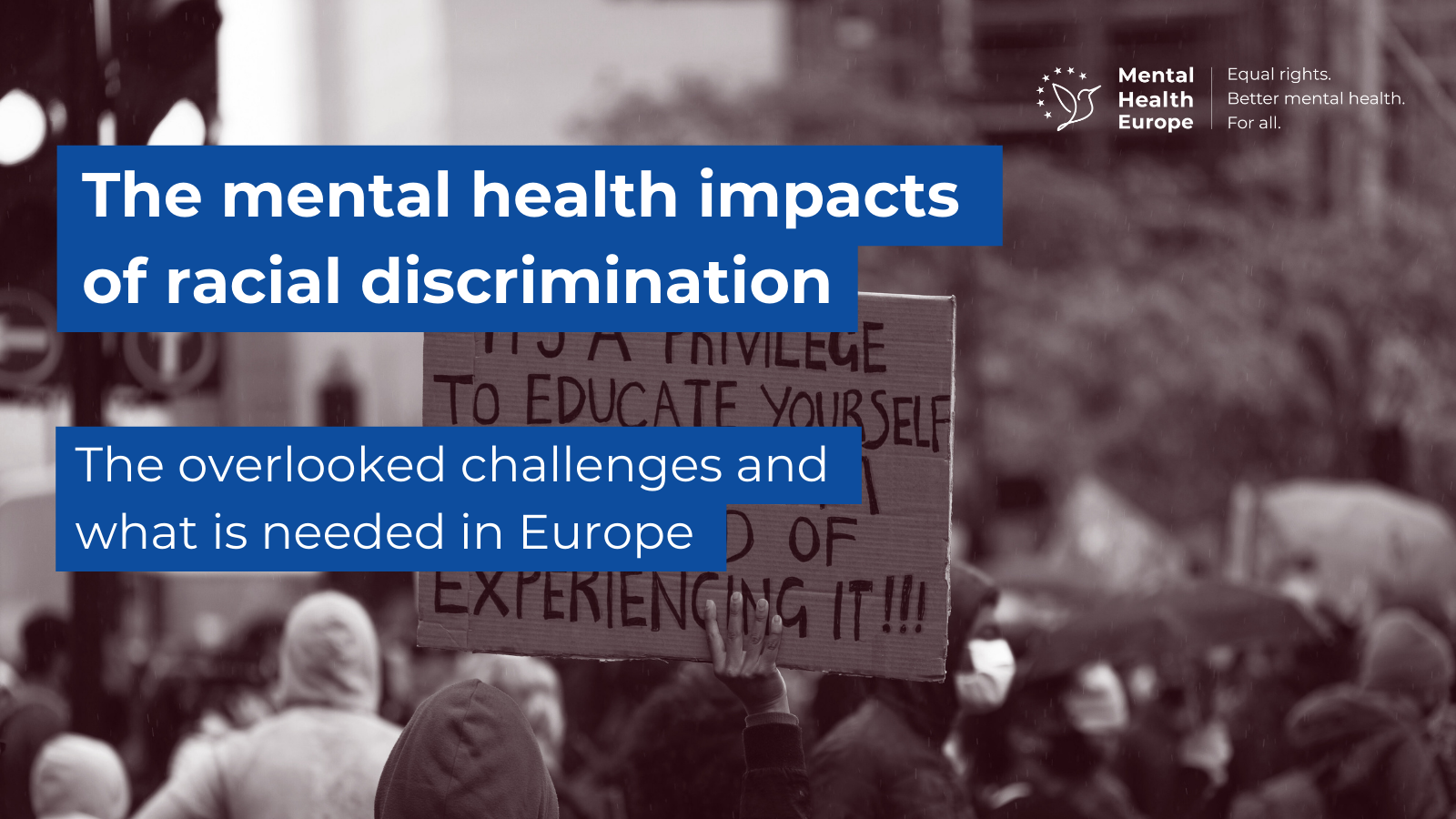Report: The mental health impacts of racial discrimination

The misunderstood challenges and how to respond
Racialised communities in Europe face higher barriers to mental health support and experience higher rates of mental health problems. This new report from Mental Health Europe explores racism and discrimination as determinants of mental health. It also provides concrete recommendations for Member States and the EU for an approach which combats discrimination and promotes equality.
The aim is to provide an outline of existing policy developments on the topic and to support the prevention of mental health problems and the promotion of good mental health.
Addressing (mental) health disparities requires a whole-society-approach. Therefore, this report is aimed at decision makers, professionals working with racialised communities and or mental health, students and those interested in the topic.
Racism, discrimination, inequalities, and mental health
In Europe, personal discrimination based on race and ethnicity remains a pervasive issue. It manifests in various forms such as verbal abuse, microaggressions, exclusion, and unequal treatment. This has profound impacts on mental health. These issues are often misunderstood, overlooked, and under documented. That makes it difficult to find solutions which focus on prevention and promotion, and make access to support easier.
Systemic racism and everyday discrimination create a persistent and compounded source of stress for racialised individuals. These challenges are further exacerbated in healthcare settings, where ethnic minorities and immigrants frequently report experiences of bias. Such biases contribute to disparities in treatment and care, leading to poorer health outcomes by restricting economic mobility, creating a cycle of stress and disadvantage.
European policy on racism and mental health
In 2020, the European Commission released an EU Action Plan Against Racism, which outlined the Union’s strategic objectives to tackle structural racism. As this action plan ends in 2025, the time is right for a reflection on the future EU mental health and anti-racist policies. New priorities should include increased mental health prevention and promotion, as well as improved access to mental health services for marginalised groups.
Recommendations
Building effective, reliable and sustainable forms of support and mental health systems requires an approach that recognises the social context in which these stressors occur. It helps to move beyond the individual, focusing on the need to challenge systemic barriers and provide culturally sensitive mental health services. Promoting mental well-being in this way requires societal change to reduce discrimination and create supportive environment.
For the European Institutions
- Develop an intersectional EU Mental Health Strategy. This should include concrete targets, objectives, and budget as well as a clear timeline and indicators which addresses the socio-economic determinants of mental health.
- Renew and strengthen EU equality strategies. Incorporate recommendations from civil society to address persistent racial and ethnic discrimination.
- Enhance data collection by standardisation of equality data collection to help monitor disparities and inform targeted policy interventions.
- Allocate EU funding to support for anti-racism and mental health initiatives.
- Promote and fund EU-wide research on the connection between racial discrimination, inequality, and mental health
Recommendations for Member States:
- Develop long term and sustainable national mental health equity action plans:
- Develop cultural competency Mandate training for healthcare professionals.
- Develop anti-discrimination laws and ensure full implementation and enforcement of the Race Equality Directive across all member states
Stay connected
Get our latest news, personal stories, research articles, and job opportunities.

